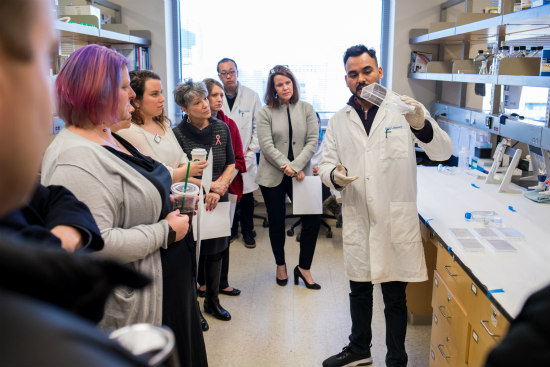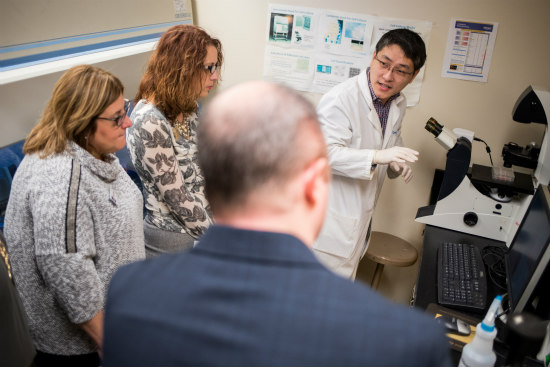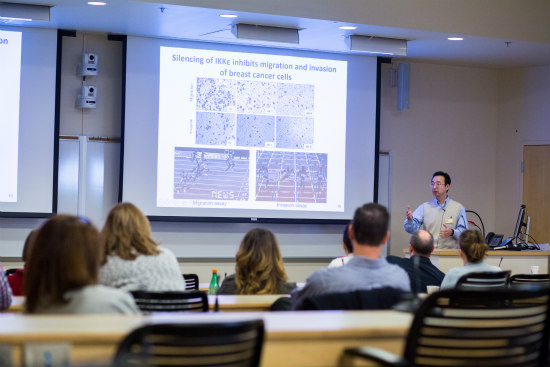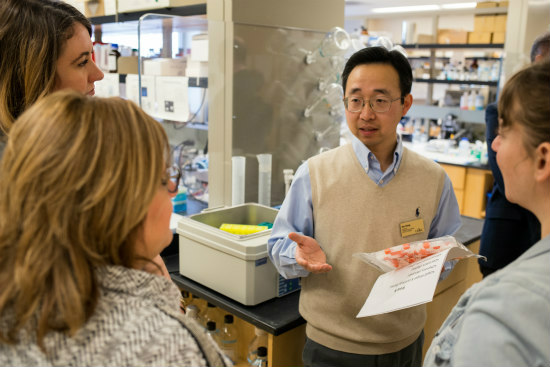The American Cancer Society has awarded Professor Kun Cheng $525,000 in research funding through 2019.
Given the investment, you can’t blame them for dropping by for a tour of Cheng’s lab at the University of Missouri-Kansas City School of Pharmacy.
Cheng’s research focuses on breast cancer.

The group of about 20 people from the American Cancer Society included administrators but were mostly the Making Strides Against Breast Cancer Pacesetters, the highest fundraisers for the society who raise ?$2,500 or more. One of the rewards for their efforts was a tour of Cheng’s lab.
“It was a great honor to be visited by American Cancer Society officers and the volunteers who have helped fundraising for the cancer society,” Cheng said. “The lab tour gives them the opportunity to experience our modern research lab in cancer research.”
Since joining UMKC in 2007, Cheng has worked on developing targeted delivery systems for drugs that treat cancer and liver disease, primarily those involving a gene-silencing large molecule called siRNA.
The molecule is so unstable that Cheng’s team will store siRNA at -112 degrees Fahrenheit to keep it from breaking down. Tour goers were able to see the liquid nitrogen, centrifuge area, chemical fume hood and other areas of the lab where they work with cell cultures and drug-protein interactions.

Cheng calls siRNA one of the most important findings in biomedical research in the past 20 years.
“It can specifically and potently block a gene to study its function or treat a disease,” he said.
The potential payoff is huge for cancer patients, who now confront the miserable, even life-threatening side effects of traditional chemotherapy.
“Many times you have to stop treatment because the side effects are too great,” Cheng said. “But when you stop treatment, the cancer cells come back.”
While siRNA is far less toxic than chemo, it’s of little value to patients by itself. Its large size and negative charge prevent siRNA from efficiently entering cells. And without alterations, it will quickly degrade in the body.

For breast cancer, Cheng is targeting an oncogene that’s active in about 30 percent of breast cancers. Previously, his team showed that blocking that gene with synthetic siRNA significantly curbed tumor growth in the laboratory and looks promising in tests.
Now he’s looking at chemical connectors that will bind siRNA with cancer cells and bring the drug deeper into breast tumors. The connectors must drop away, however, once it enters tumor cells.
“That’s challenging,” Cheng said.

